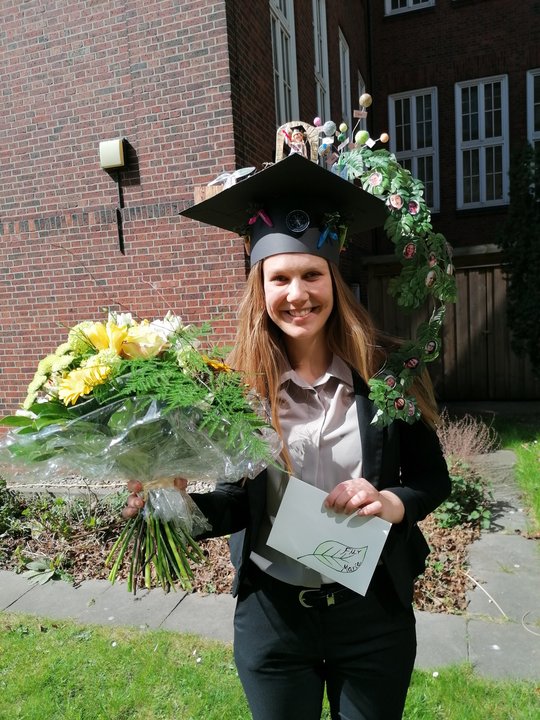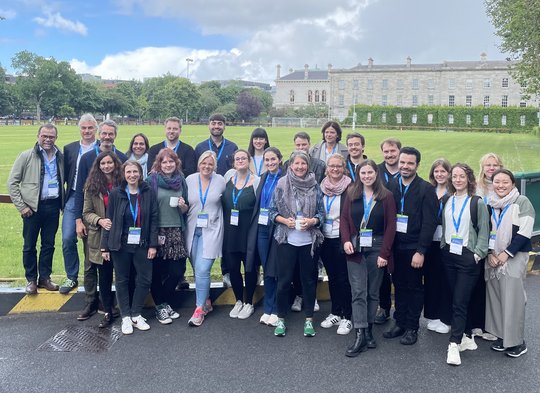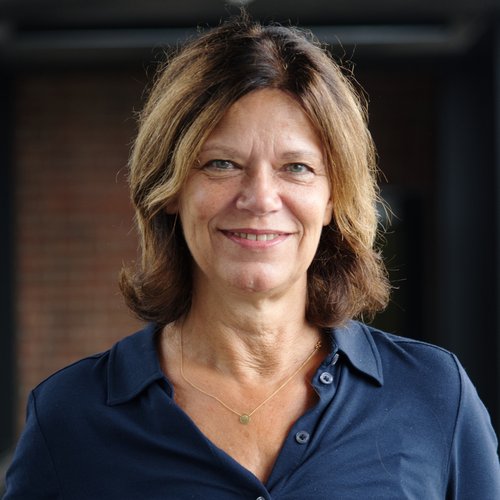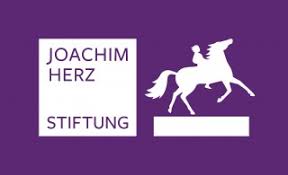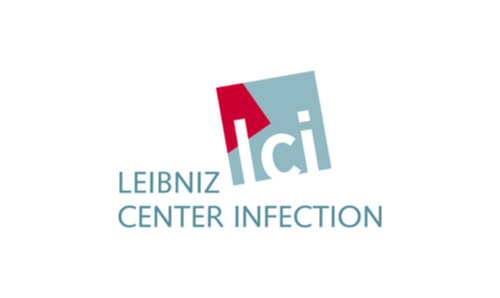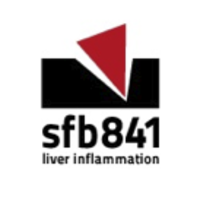ECTMIH 2025
29 September - 2 October 2025
Hamburg, Germany
The 14th European Congress on Tropical Medicine and International Health (ECTMIH 2025) is hosted by the Federation of European Societies for Tropical Medicine and International Health (FESTMIH), in collaboration with the Bernhard Nocht Institute for Tropical Medicine (BNITM), which also celebrates its anniversary during the congress. Under the banner ‘Better health for all in a changing world’, the conference aims to advance interdisciplinary dialogue and collaboration across the fields of tropical medicine, global health, and One Health. The congress emphasizes the importance of health equity, the impact of climate and environmental change, and the role of innovation and implementation science in improving health outcomes, particularly in resource-constrained settings.

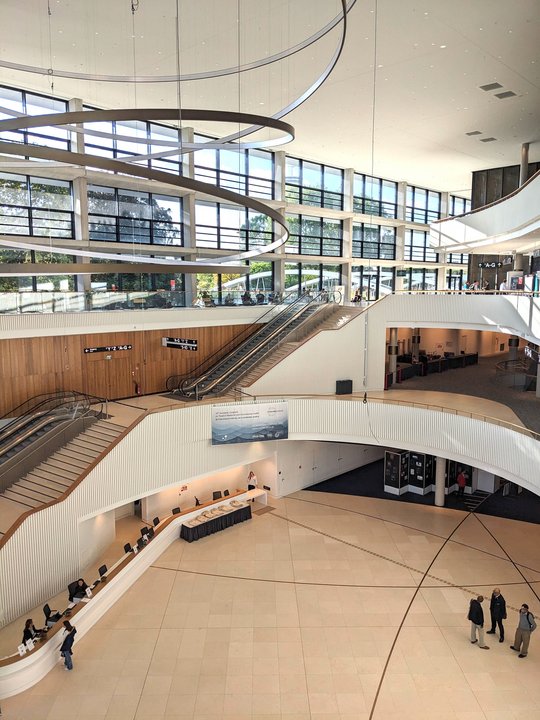
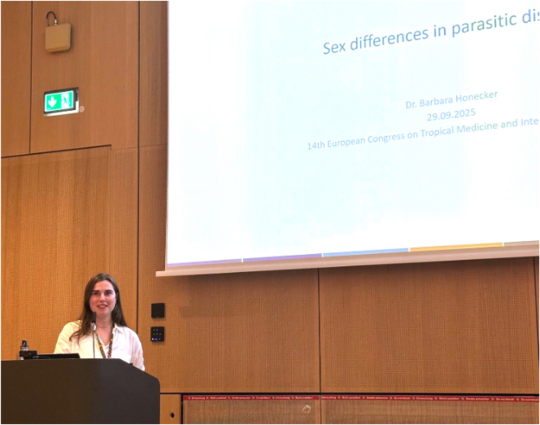
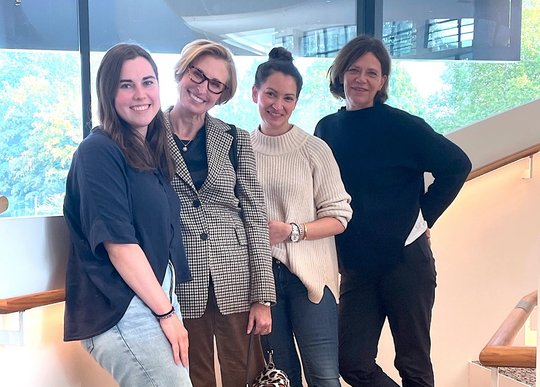
Sex Differences in Immunity Congress
EFIS (European Federation of Immunological Societies)
23rd October 2025
Institut Pasteur | Paris
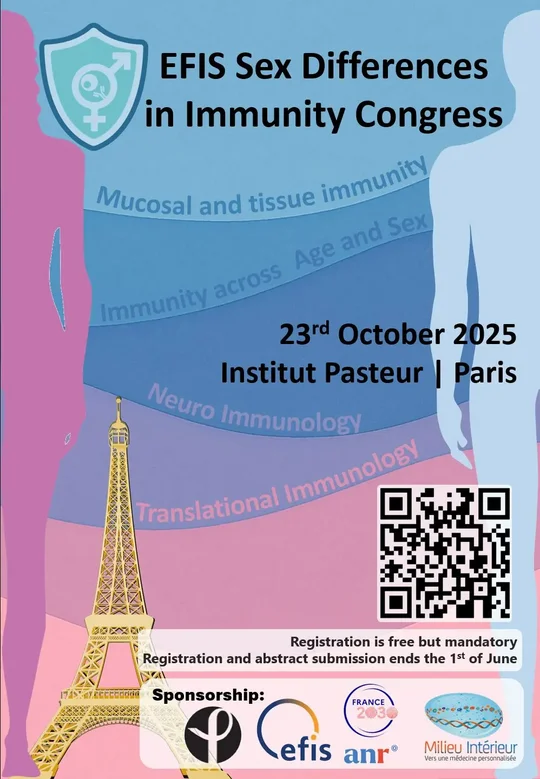


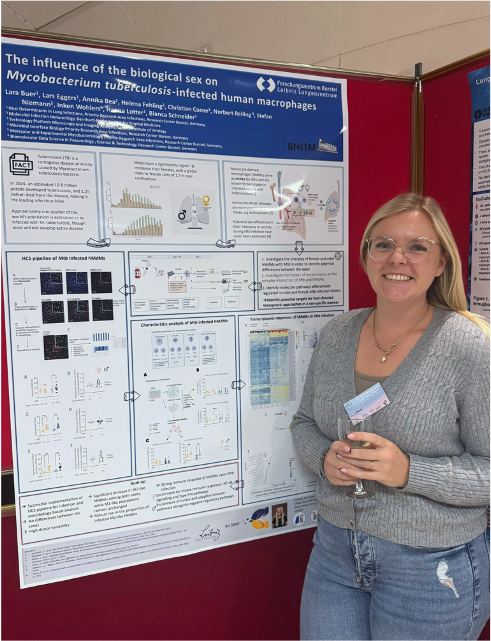
Working group excursion to the Hamburg Planetarium
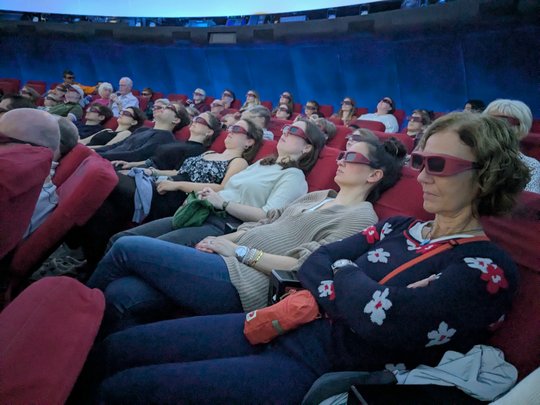
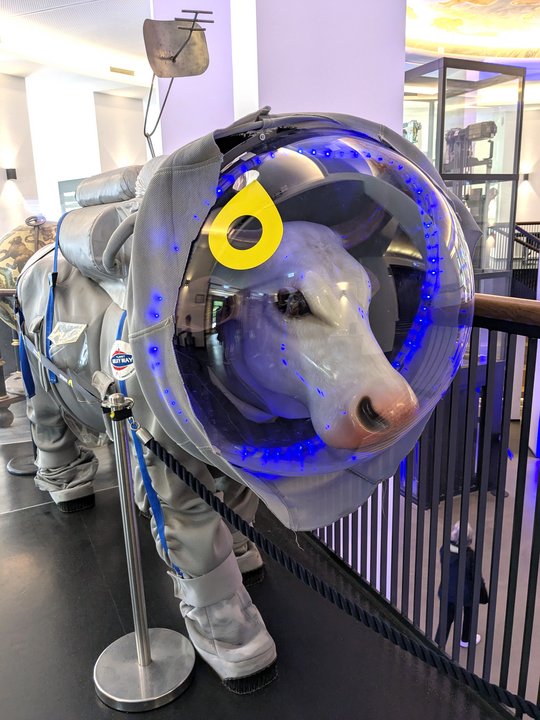
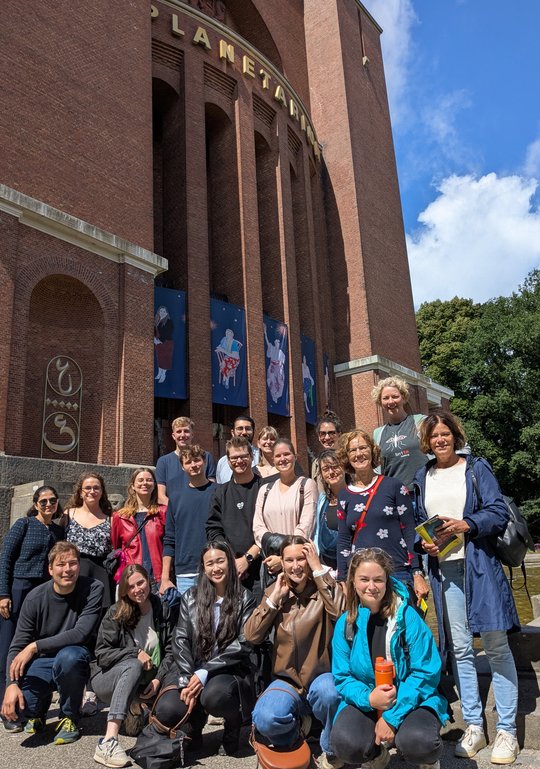
Award for excellent doctoral theses at the Tropical Institute
Dr Barbara Honecker and Dr Valeria Füsslin receive doctoral prizes from the BNITM Sponsors' Association
27.06.2025
©VdF
Dr Barbara Honecker receives the doctoral award in the natural sciences category for her work on the role of extracellular vesicles of the tropical parasite Entamoeba histolytica in the communication between the parasite and the host's immune cells in amoebiasis. In this intestinal disease, severe complications can occur in the liver, so-called amoebic liver abscesses, in which these immune cells are significantly involved. Extracellular vesicles are small particles that cells secrete for communication. Dr Honecker's research showed how these vesicles could contribute to the pathogenicity of the parasite and thus provides new approaches for investigating the disease mechanisms in a more targeted manner.
Dr Honecker combined molecular biological, immunological and bioinformatic methods for her experiments. Her dissertation was characterised by a high degree of innovation, technical complexity and its significance for the understanding of tropical infectious diseases. In addition, Dr Honecker was involved as a doctoral student spokesperson at the BNITM and in the Leibniz PhD Network for the interests of young scientists.
Congratulations Barbara!
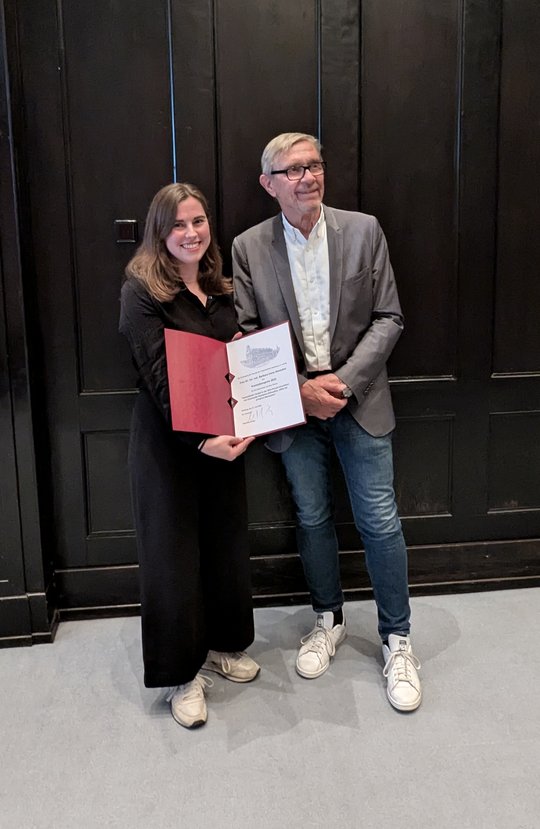
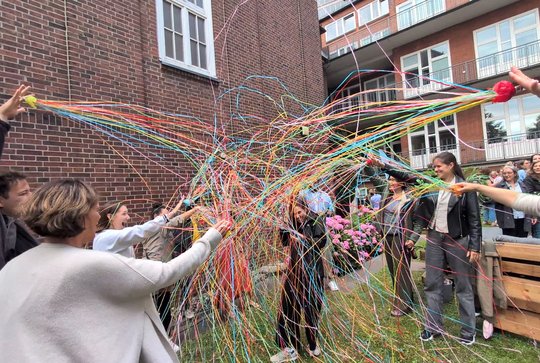
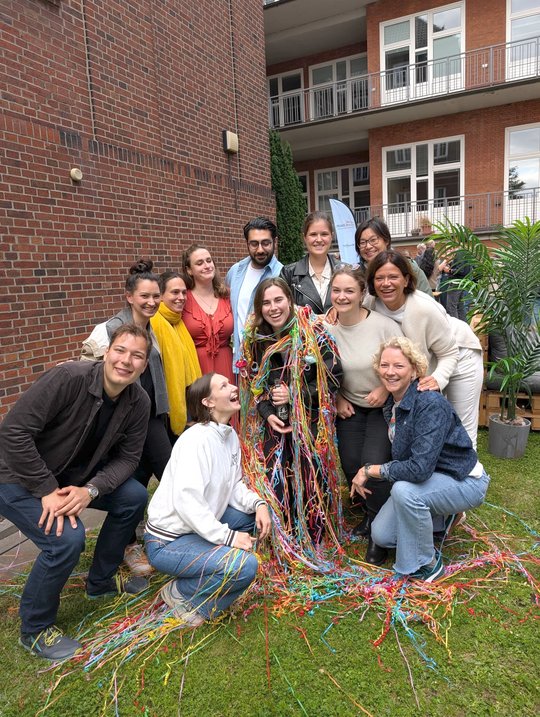
DFG verlängert Förderung für Forschungsgruppe „Geschlechtsspezifische Unterschiede in der Immunantwort“
Die Forschungseinheit „Geschlechtsspezifische Unterschiede in der Immunantwort“ wird von der Deutschen Forschungsgemeinschaft (DFG) für weitere vier Jahre mit fünf Millionen Euro gefördert. An dem seit 2021 geförderten Projekt (FOR 5068) sind die UKE-Bereiche Immunologie, Autoimmunerkrankungen, Kinderheilkunde, Infektiologie und Tumorforschung, das Bernhard-Nocht-Institut für Tropenmedizin (BNITM), das Universitätsklinikum Mannheim sowie neu das Forschungszentrum Borstel (FZB) mit insgesamt neun Projektgruppen beteiligt. Leiter:innen der Forschungseinheit sind Prof. Dr. Marcus Altfeld, Direktor des Instituts für Immunologie des UKE und des Leibniz Instituts für Virologie (LIV), und Prof. Dr. Hanna Lotter vom BNITM. Gemeinsam wollen die Wissenschaftler:innen herausfinden, welche Ursachen und Mechanismen hinter den unterschiedlichen Reaktionen des Immunsystems von Frauen und Männern stecken. Insbesondere untersuchen die Forschenden, wie Geschlechtshormone die Funktion von Immunzellen beeinflussen. Denn je besser verstanden wird, wie sich biologische geschlechtsspezifische Unterschiede auf die Symptome und den Verlauf von Krankheiten auswirken, desto besser kann dies bei der Behandlung berücksichtigt werden.
Zum Hintergrund: UKE – Research Unit 5068
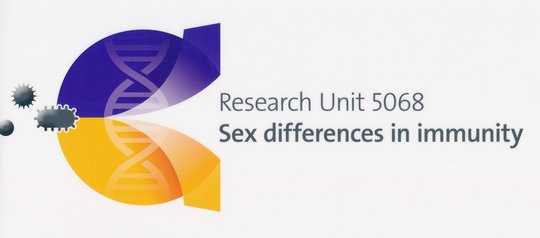
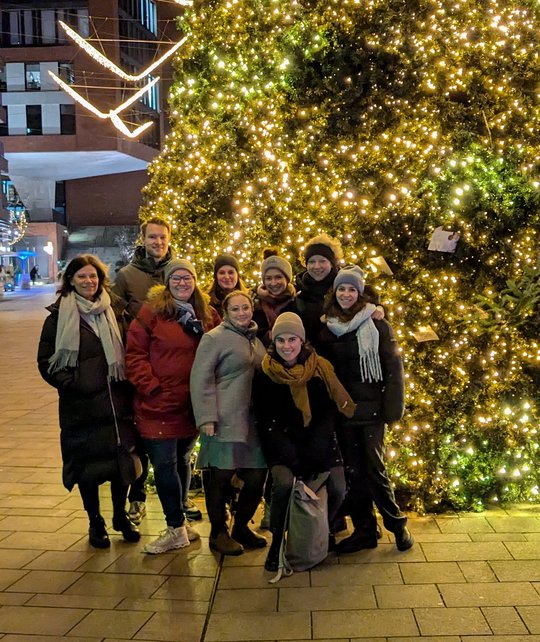
we wish you a merry christmas season!
We congratulate Charlotte Hansen on her successful dissertation entitled
“Geschlechtsspezifische Unterschiede in der Expression und Funktion von CD64 auf murinen Monozyten nach Vakzinierung”
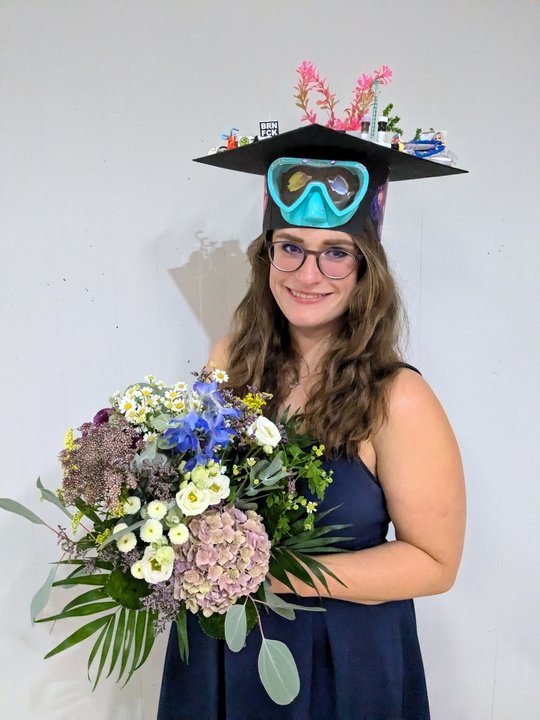
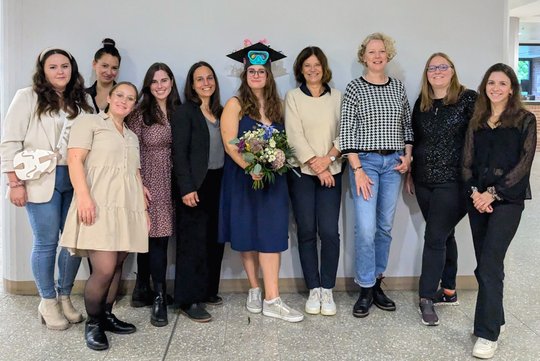
We congratulate Melanie Lütkemeyer on her successful dissertation entitled
“Characterization of Leishmania infantum infection in hepatocyte organoid immune cell co- cultures”
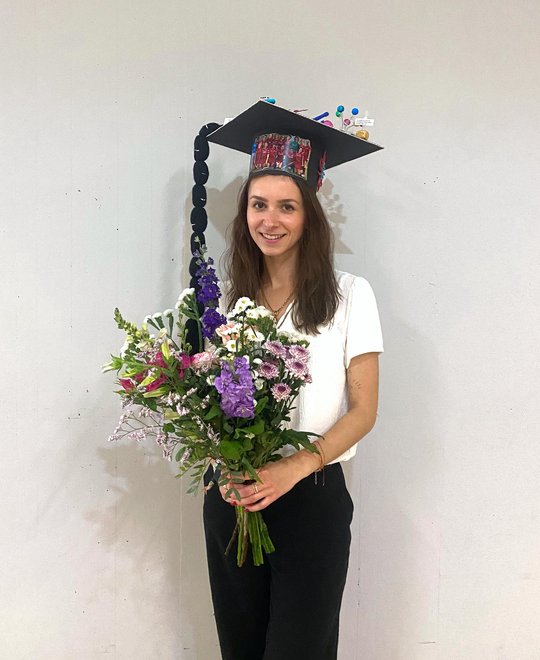
3rd Biennial Meeting
Sex Differences in the Immune System
12-14 June 2024
Hosted at Trinity College Dublin
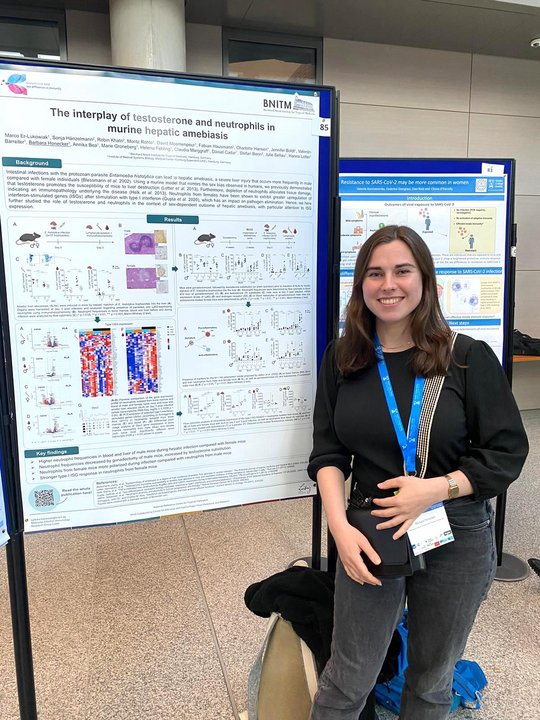
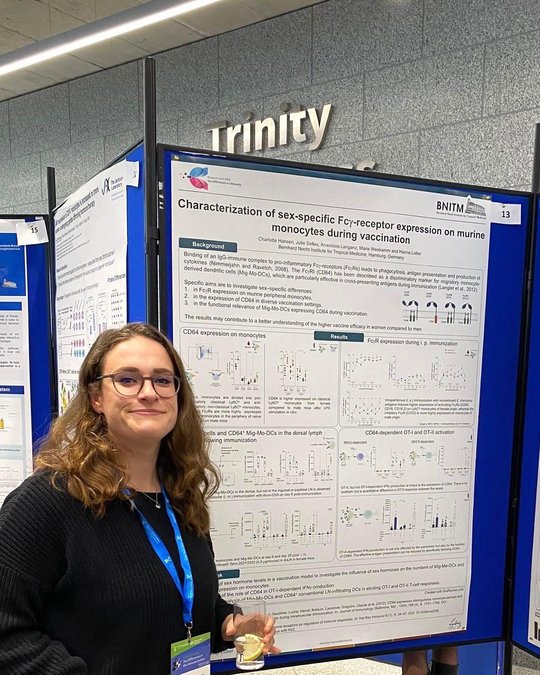
We congratulate Annika Bea on her successful dissertation entitled
“Sex-specific factors affecting intracellular infection of human primary macrophages by visceral Leishmania spp.”
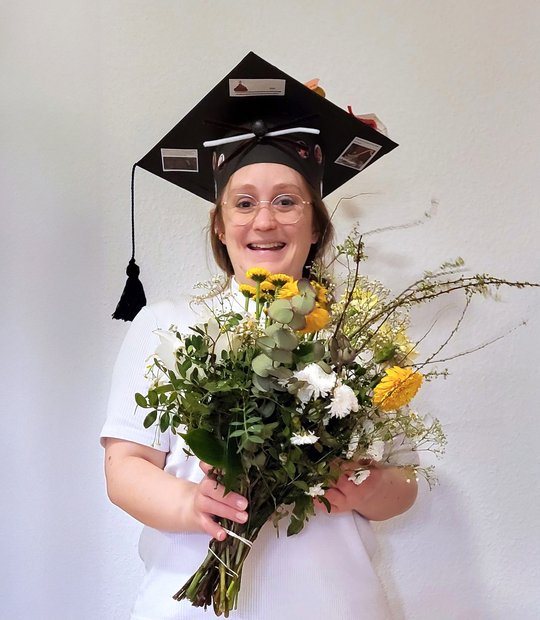
Happy New Year!
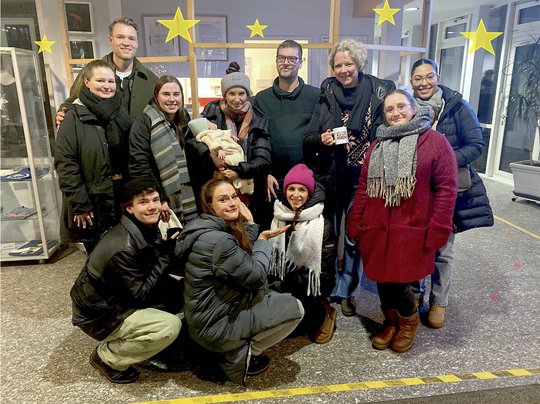
We congratulate Barbara Honecker on her successful dissertation entitled
"Extracellular vesicles in host-parasite interaction of Entamoeba histolytica (Schaudinn, 1903) with primary monocytes"!
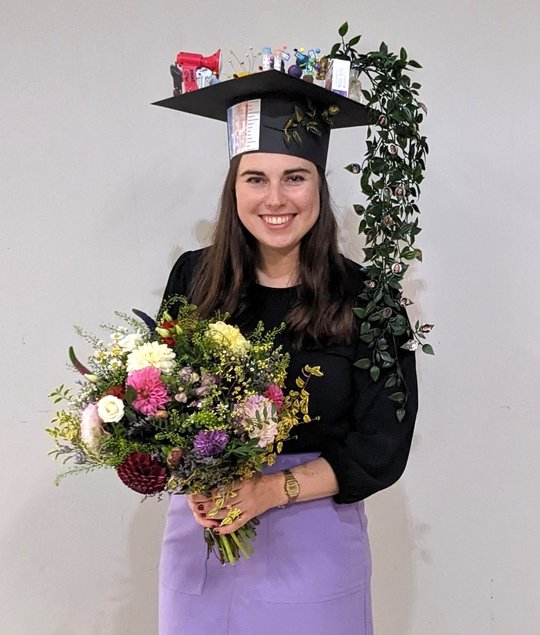
Excursion to the wildlife park Schwarze Berge, Rosengarten, Lower Saxony
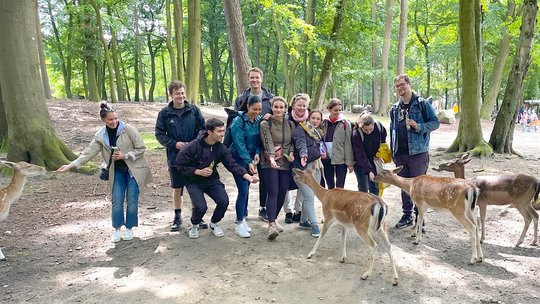
Members of the Molecular Infection Immunology Group participate in the Gordon Research Conference "Sex Differences in Immunity"
Ventura, CA, United States
April 2 - 7, 2023
The Sex Differences in Immunity GRC is a premier, international scientific conference focused on advancing the frontiers of science through the presentation of cutting-edge and unpublished research. The conference program includes a diverse range of speakers and discussion leaders from institutions and organizations worldwide, concentrating on the latest developments in the field.
Biological sex, meaning the differences between males and females caused by differential sex chromosome complement, reproductive tissues, and concentrations of sex steroids, impacts the functioning of the immune system. Sex differences in immune function can occur as a result of differential expression of X-linked and autosomal genes due to epigenetic modifications as well as changes in sex steroid receptor signaling inside of immune cells over the life course.
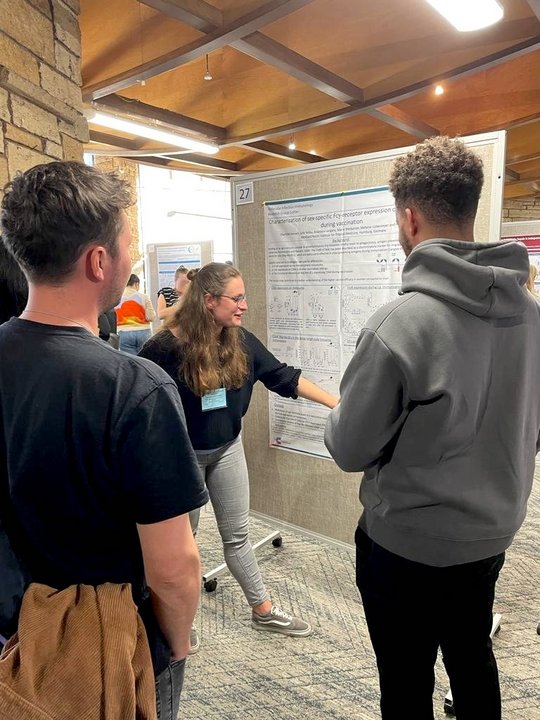
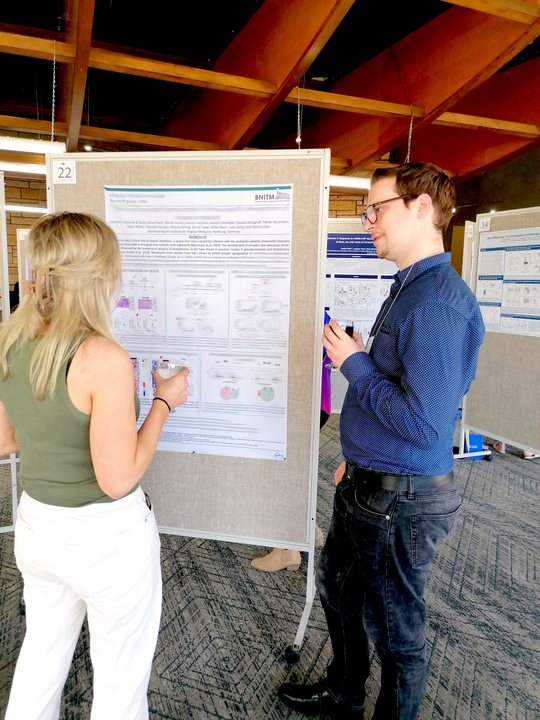
Helena Fehling and Annika Bea win the research picture challenge at a symposium hosted by BNITM on World NTD Day (Neglected Tropical Diseases) on January 30th at Erika-Haus/ University Medical Center Hamburg-Eppendorf, Germany
The enemy within
A View through a microscope: This picture shows macrophages (blue) isolated from a healthy human infected in vitro with Leishmania parasites (red).
Leishmaniasis is an increasingly prevalent and complex group of poverty-related, neglected tropical disease that affects over 12 million people worldwide. As with many infectious diseases, it is observed that men are more susceptible to the disease and have severe disease progression. Leishmaniasis is endemic in at least 88 countries, but is becoming more prevalent in southern Europe due to climate change, tourism and migration. The devastating effects of the disease range from stigmatization to death, depending on the Leishmania species. To date, there is still no adequate treatment available for patients. Existing drugs for leishmaniasis generally have serious drawbacks. Therefor new drugs are urgently needed.
Leishmania parasites invade host immune cells such as macrophages, where they can survive and multiply. They can evade their clearance by manipulating the host´s immune responses. Our research group at the Bernhard Nocht Institute for Tropical Medicine has identified, synthesized and patented immunomodulators that specifically activate the human immune system to better eliminate intracellular Leishmania parasites. Results so far indicate that our molecules provide a promising approach that could improve the currently unsatisfactory situation of treating this neglected tropical disease.
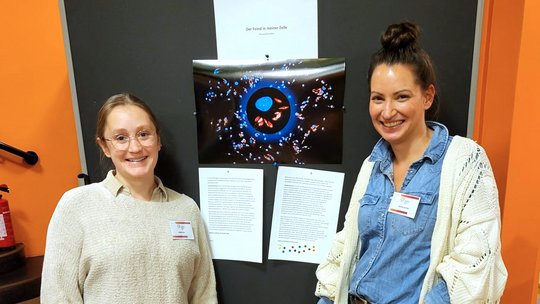
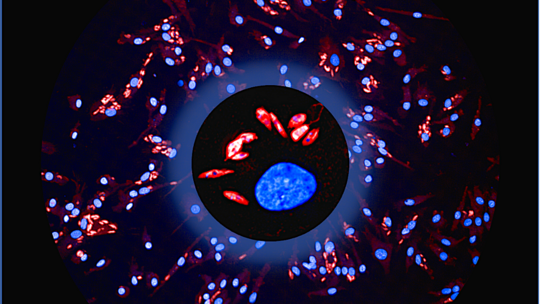
Poster Award for Annika in Cartagena, Colombia
Annika Bea, Bernhard Nocht Institut for Tropical Medicine,
was awarded as best poster presentation award granted by Tropical Medicine
and Infectious Disease an open access journal by MDPI, in the 7th World
Congress on Leishmaniasis, WorldLeish7, with the abstract entitled:
"Influence of leishmania infection on the biology of host cells"
on August 6, 2022, Cartagena, Colombia.
Congratulations Annika!
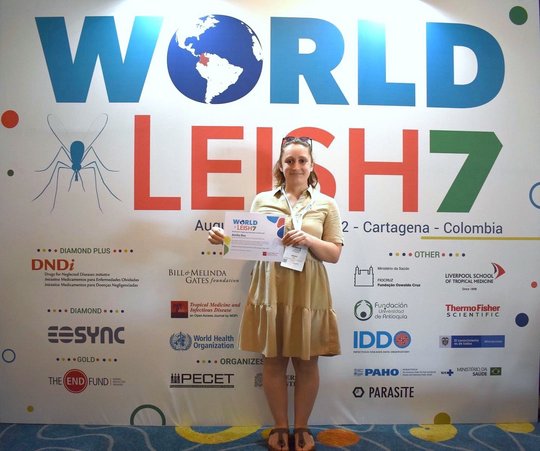
Excursion to the Börnsen Strawberry Field 2022
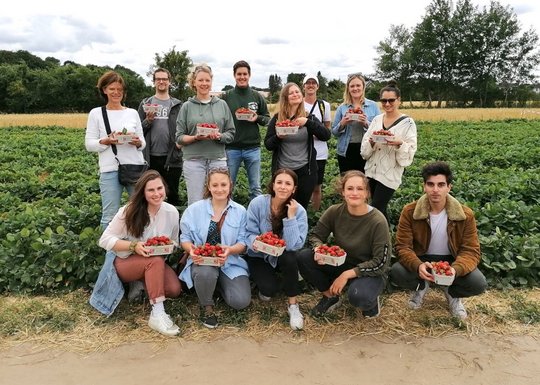
Dr. Marie Groneberg and Dr. Luzia Veletzky receive doctoral prizes from the BNITM Friends Association
01.07.2022
©VdF
Of gender differences in the defence against infection and a truly neglected tropical disease
This year's doctoral prizes of the Association of Friends of the Tropical Institute Hamburg e.V. (VdF) go to Dr Marie Groneberg (Natural Sciences) and Dr Luzia Veletzky (Medicine). They are endowed with 1,000 euros each and honour particularly outstanding dissertations at the Bernhard Nocht Institute for Tropical Medicine.
Men fall ill differently, women too. Compared to women, men contract numerous viral, bacterial and parasitic infections much more frequently and severely. These include, for example, hepatitis B, covid-19, tuberculosis, Helicobacter and amoebic infections.
Prof. Hannelore Lotter's Molecular Infection Immunology group studies, among other things, gender-specific immune reactions in the formation and regeneration of amoebic liver abscesses. She had already shown that the sex hormone testosterone favours the development of liver abscesses.
Regulatory protein partly responsible for sex difference
Marie Groneberg and her colleagues followed up on these results. They analysed sex-specific differences in the acquired immune response in amoebic liver abscesses and carried out detailed molecular investigations of the immune response in the mouse model.
Among other things, they determined the occurrence and number of immune cells characterised in detail and the concentration of immunological messengers in the liver and blood of normal mice and mice with a targeted genetic defect.
They showed that in experimental amoeba infections in the liver, a specific immunoregulatory protein (HIF-1alpha) is partly responsible for the stronger immune response of the male mice. The protein is present in the liver cells of both sexes in response to amoebic infection, but influences the immune cell response of male and female animals to different degrees. Targeted knockdown of HIF-1alpha in the liver reduces the inflammation- and abscess-promoting immune response in male mice and leads to the abolition of the sex difference.
Congratulations Marie!
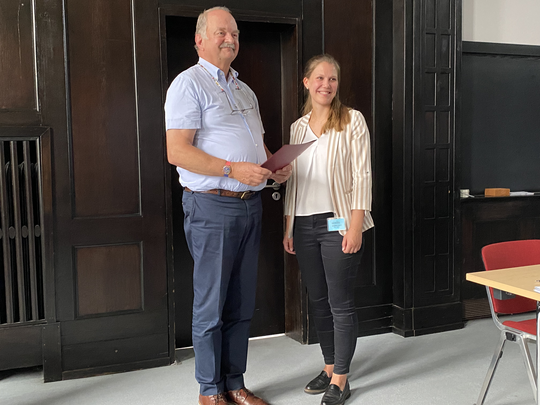
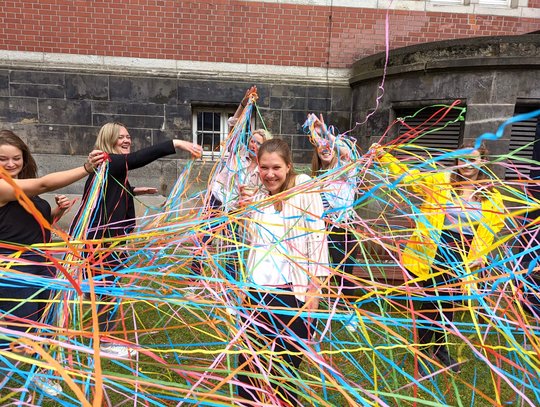
Award of the Werner Otto Prize to BNITM scientist Julie Sellau
Hamburg, 14 December 2021 - Dr Julie Sellau, scientist in the Molecular Infection Immunology group at the Bernhard Nocht Institute for Tropical Medicine, today receives the Werner Otto Award, endowed with 8000€, for her outstanding contribution to knowledge on gender-specific immunology. Her award-winning work was published in the renowned journal Nature Communications in July 2020.
Research on gender differences in infectious immunology is in its infancy. While men are more susceptible to infectious diseases, women are more prone to chronic inflammation and autoimmune diseases. In order to create better treatment options, it is important to clarify the causes.
The Lotter working group, in which Ms Sellau has been a researcher for four and a half years, is dedicated to precisely this question: Using the amoebic liver abscess, they showed that the male sex hormone testosterone causes certain immune cells, which are actually supposed to protect against invading pathogens, to increase inflammatory reactions in the liver. These immune cells thus contribute significantly to tissue damage. The findings of Dr. Sellau and her colleagues open up new approaches for more targeted personalised medicine.
Congratulations Julie!
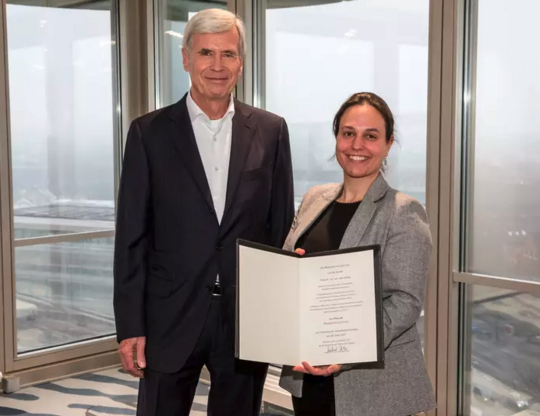
Greetings from the strawberry field!
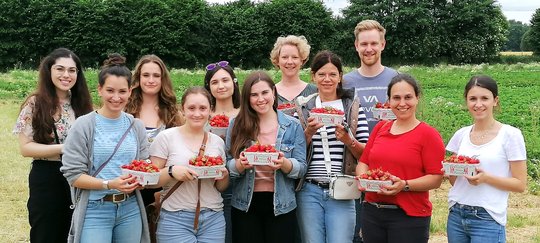
We congratulate Stefan Hoenow on his successful dissertation entitled "Charakterisierung pro-inflammatorischer Monozyten in murinen Infektionen mit Entamoeba histolytica und Listeria monocytogenes "!
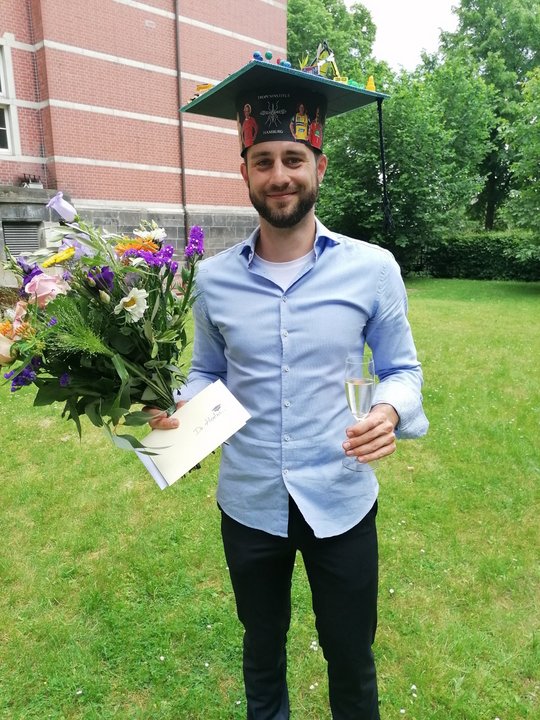
We congratulate Marie Groneberg on her successful dissertation entitled "Geschlechtsspezifische Immunantworten bei der hepatischen Amöbiasis"!
